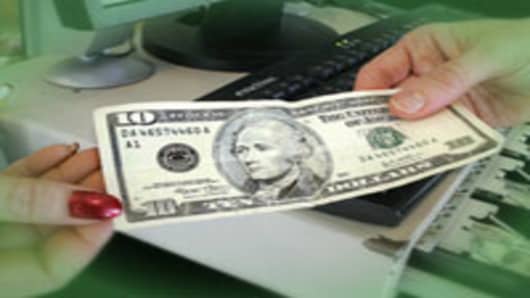U.S. consumer confidence rose unexpectedly in early July with the help of retail discounts, but the increase was marginal and barely enough to pull it off June's 28-year low, according to a survey released Friday.
The Reuters/University of Michigan Surveys of Consumers said the preliminary July reading for its index of consumer sentiment rose slightly to 56.6 from June's final result of 56.4.
Wall Street had expected a July reading of 55.5, according to a Reuters poll of economists. The 63 forecasts in the poll ranged from 50.1 to 57.0.
The June reading was the lowest since 51.7 in May 1980, which was also the weakest reading ever. The index dates back to 1952, though the survey has been conducted since 1946.
The Surveys of Consumers, in a release, also said one-year inflation expectations jumped to the highest since the stagflationary year of 1981, rising to 5.3 percent from June's 5.1 percent.
Five-year inflation expectations held steady at the peak of 3.4 percent it occupied in both May and June, which was the highest in 13 years.
The low overall consumer sentiment and high inflation expectations leave the Federal Reserve in a bind. The U.S. central bank must decide whether to keep interest rates low to support growth or raise them to damp price growth.
"Consumer confidence remained unchanged from June at just above its 50-year low due to surging prices and mounting job losses," the Surveys of Consumers said in a statement.
"Continued declines in consumers' evaluations of their personal finances were offset by the availability of larger discounts on household durables and vehicles."
The index of consumer expectations fell to its lowest since May 1980, hitting 48.3 after June's 49.2.
The report said more consumers complained about higher food and fuel prices and smaller income gains than ever before, and the fewest expected improvement in their finances than at any other time in the history of the survey.
The report added: "More than nine in 10 consumers think that the economy is now in recession, and a deepening downturn was widely anticipated during the year ahead."
Officials have said the United States is not in a period of stagflation, marked by a weak economy and accelerating price growth, as it was in the 1970s and early 1980s.
The Fed has bet the weak economy would eventually tame price growth.


